Having a pet is more than just having a fluffy companion to cuddle with after a long day. Pets can act as mirrors to our inner world, reflecting back our emotional states in surprising ways. You might not even realize how much your emotions and behavior affect your pet until you start noticing certain patterns. This isn’t just about your pet mimicking your bad day with a chewed-up shoe. It’s about how those deeper emotional wounds can manifest through your furry friend’s actions and reactions.
1. Your Anxiety Is Their Restlessness
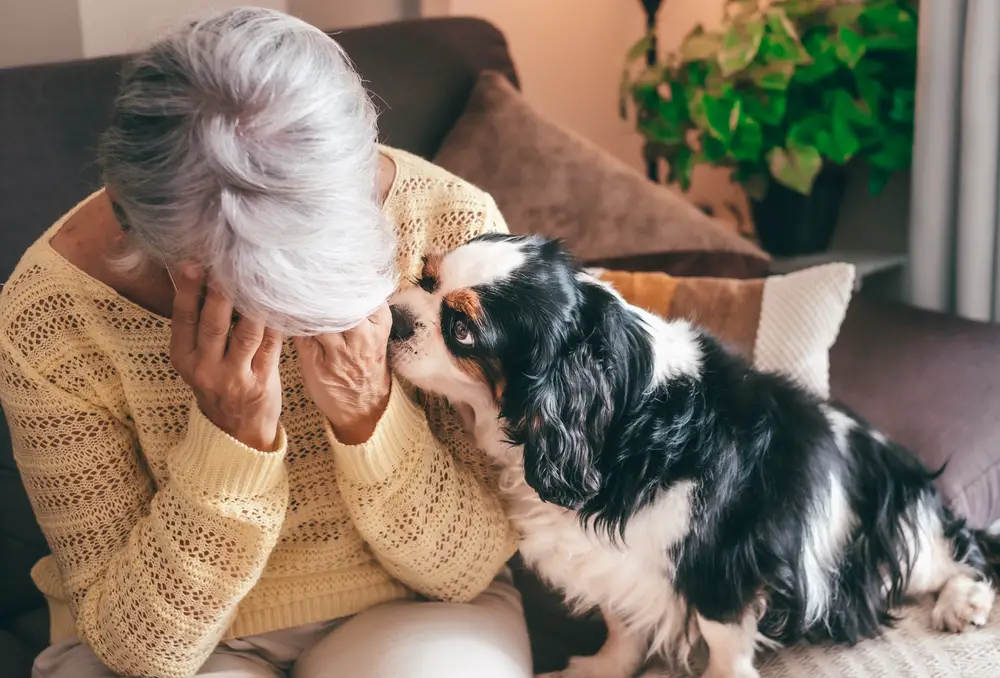
If you find yourself feeling anxious, you might notice your pet acting restless or uneasy. Pets are incredibly perceptive to the emotional states of their owners and often pick up on the subtle cues of anxiety. According to Dr. Marc Bekoff, an expert in animal behavior, animals can sense when their human companions are stressed, leading to similar behaviors in them. For instance, a dog might pace around the house, or a cat might become more vocal or hide away. This mirroring can be a wake-up call to address your own stress levels and aim for a more calming environment for both you and your pet.
When you recognize this behavior in your pet, it’s a chance to check in with yourself. Are you feeling overwhelmed or nervous about something? It might be time to explore ways to manage your anxiety, not just for your well-being but for your pet’s, too. Techniques such as mindfulness or deep-breathing exercises can help bring a sense of calm to your household. Remember, a relaxed owner often means a relaxed pet.
2. Your Sadness Is Their Comforting Nature
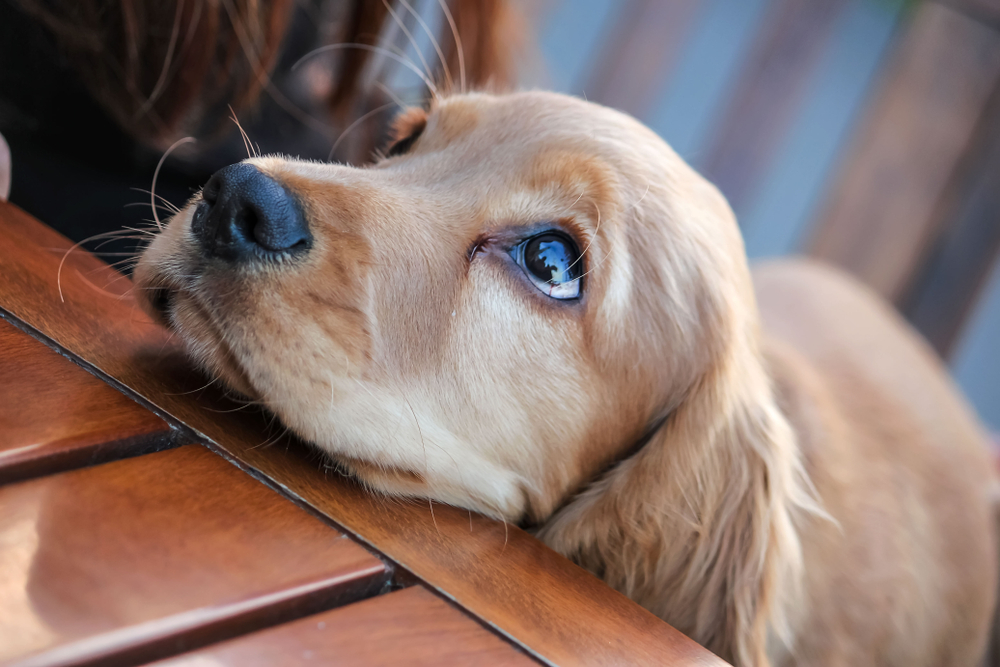
When you’re feeling down, your pet might become more attentive, offering comfort in their own unique way. It’s remarkable how pets can detect sadness and respond with gestures of companionship. They might curl up next to you, nuzzle your hand, or simply stay close by, offering silent support. This behavior can serve as a reminder that you’re not alone, and sometimes just being present is enough.
The comforting nature of your pet during these times is a testament to their intuitive nature. They are not trying to solve your problems, but their presence itself can be incredibly soothing. Your pet’s response to your sadness can encourage you to open up and express your emotions freely. This bond is an essential part of the healing process, serving as a reminder to seek comfort when needed. By acknowledging and accepting your pet’s support, you can cultivate a deeper connection with them and with yourself.
3. Your Anger Is Their Nervousness

If you frequently find yourself in a bad mood or feeling angry, your pet might start showing signs of nervousness. Pets can become uneasy when exposed to raised voices or tense situations, often retreating to a safe spot or exhibiting submissive behavior. According to a study published in Scientific Reports, dogs are particularly sensitive to the emotional tone of human voices, which can lead to heightened stress levels in them. This sensitivity means your pet is likely to pick up on the undercurrents of your frustration and react accordingly.
Being aware of this connection can motivate you to manage your anger more effectively. Instead of allowing your emotions to spill over, consider healthier ways to release pent-up tension, such as exercise or creative outlets. By addressing your anger, you can create a more peaceful environment for your pet, helping them feel secure. Furthermore, this practice can lead to a more fulfilling relationship with your pet, as they’ll trust you to remain a calm and stable presence in their lives. Remember, your pet is looking to you for guidance on how to interpret the world around them.
4. Your Joy Is Their Playfulness
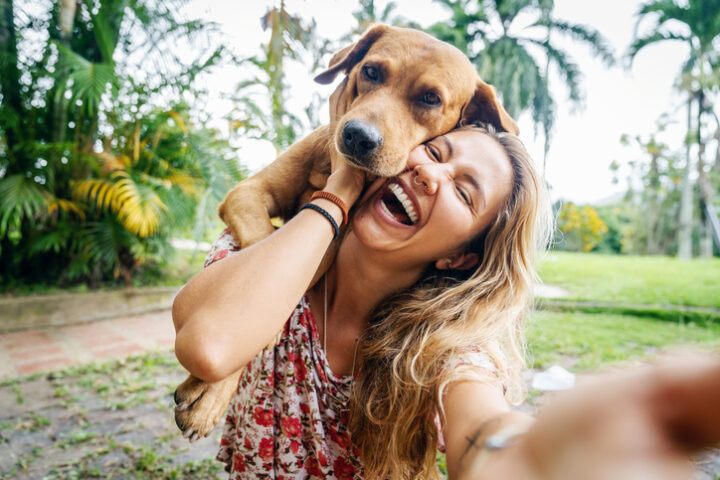
When you’re genuinely happy and content, your pet often reflects that joy back with their own sense of playfulness. Pets are naturally drawn to positive energy and will likely respond with excitement and enthusiasm. You might notice them bringing their favorite toy to you more often or engaging in playful antics that bring a smile to your face. This interaction is a delightful reminder of how contagious happiness can be.
Your pet’s playful demeanor in response to your joy can inspire you to embrace the lighter side of life more often. It’s easy to get caught up in the stresses of daily life, but your pet serves as a living testament to the importance of downtime and fun. By engaging in play with your pet, you’re not only strengthening your bond but also boosting your own mood. It’s a simple exchange of positive energy that benefits both of you. Remember, joy begets joy, and your pet is a willing participant in creating a joyful home.
5. Your Fear Is Their Alertness
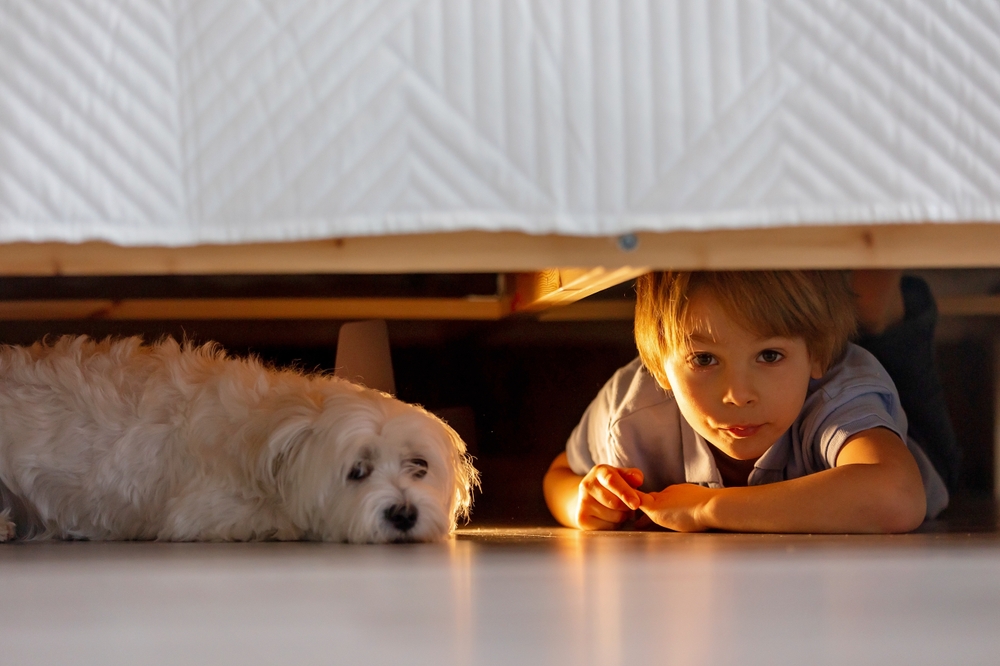
When you’re feeling afraid or uncertain, your pet might become more alert or vigilant. This heightened state of alertness is often a response to picking up on your fear signals. Dr. Patricia McConnell, a renowned animal behaviorist, explains that animals are adept at reading body language and can sense when their owners are feeling fearful. This can result in your pet standing guard or displaying protective behavior, trying to ward off any perceived threats.
Being aware of this dynamic can help you understand the importance of managing your fears. By working on overcoming your anxieties, you can help your pet feel more relaxed and at ease. Consider practicing mindfulness or seeking professional help if your fears become overwhelming. By addressing these emotions, you create a more stable and calm environment for your pet. Remember, their alertness is a reflection of your emotional state, and tackling your fears is beneficial for both of you.
6. Your Confidence Is Their Curiosity
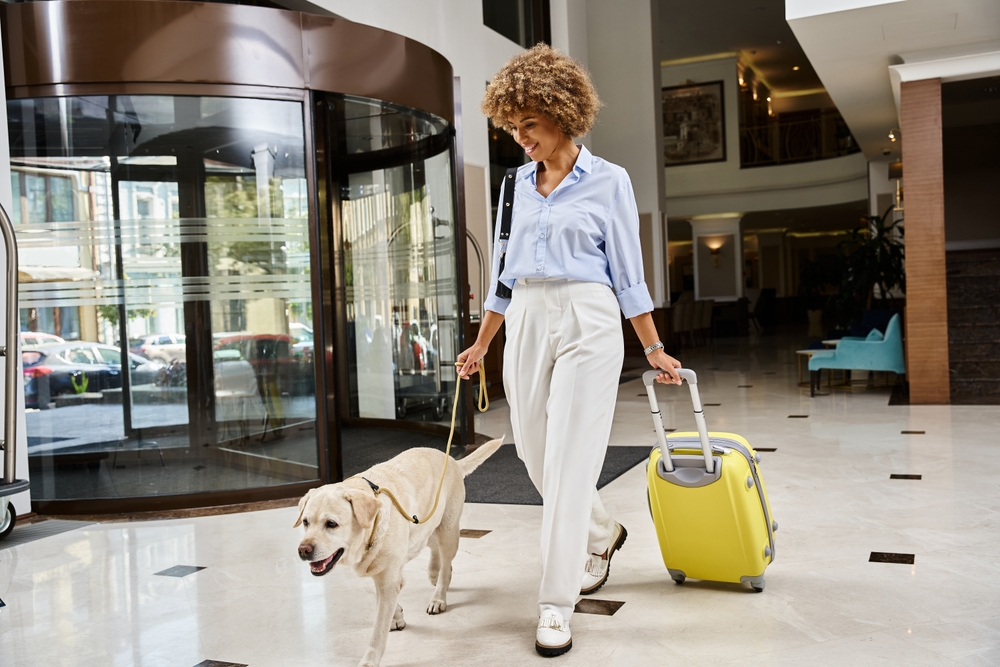
When you feel confident and self-assured, your pet might mirror this with an increased sense of curiosity. Pets are naturally inquisitive, but they often take cues from their owners when exploring their environment. When you exhibit confidence, your pet may feel more secure in exploring new territories or engaging with new experiences. This dynamic reflects the trust they have in you as a leader and a source of stability.
Your pet’s curiosity in response to your confidence can serve as a reminder of the benefits of self-assurance. By tackling challenges and embracing new opportunities, you not only enrich your life but also enrich your pet’s environment. Encouraging exploration and adventure can lead to more fulfilling experiences for both of you. This shared journey of discovery can deepen the bond you share with your pet, fostering mutual trust and support. Remember, your confidence can open doors to new experiences for both you and your furry friend.
7. Your Loneliness Is Their Clinginess
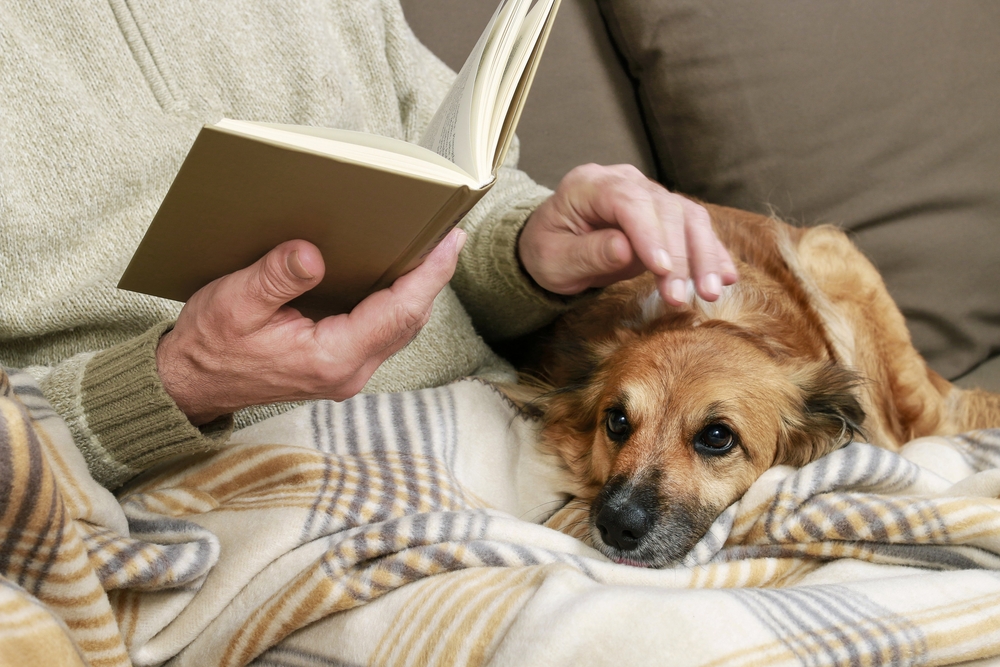
If you’re feeling lonely or isolated, your pet might become more clingy and attached to you. Pets often sense when their owners are in need of companionship and respond with increased affection and attention. According to Dr. John Bradshaw, an anthrozoologist, pets have evolved to be attuned to human emotions and often seek to provide comfort in times of loneliness. This clinginess can be a beautiful reminder that you have a devoted companion who values your presence.
Recognizing this behavior can prompt you to address feelings of loneliness and seek out social connections. While your pet is a great source of comfort, human interaction is also essential for your well-being. Consider reaching out to friends or engaging in community activities to balance your social needs. By addressing loneliness, you create a more enriching environment for both you and your pet. Remember, your pet’s clinginess is their way of saying they’re there for you, but it’s also important to cultivate connections outside your immediate household.
8. Your Routine Is Their Security
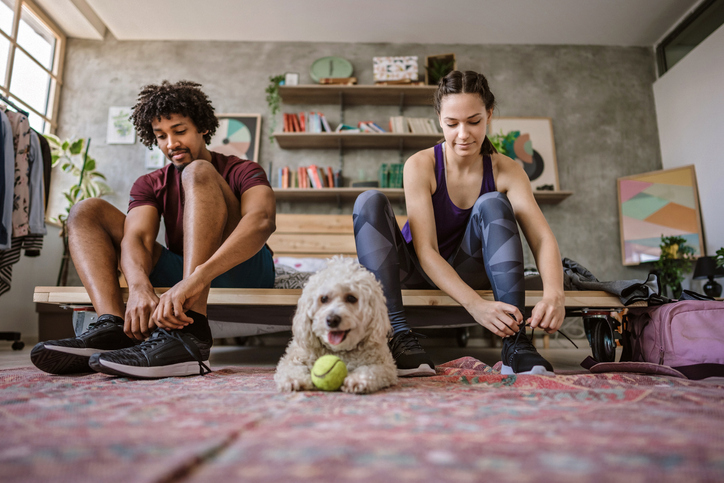
Your daily routine not only structures your life but also provides a sense of security for your pet. Animals thrive on consistency and predictability, and your schedule plays a significant role in their well-being. When you maintain regular feeding times, walks, or play sessions, your pet feels secure and knows what to expect. This routine becomes a comforting constant in their lives, reflecting the stability you bring to your home.
By keeping a consistent routine, you’re also fostering a sense of trust and reliability with your pet. They rely on you for their basic needs, and knowing that these will be met regularly builds their confidence in you. This mutual dependence creates a harmonious living environment for both of you. Additionally, sticking to a routine can benefit your own mental health, providing structure and purpose. Remember, your pet’s sense of security is closely tied to your commitment to maintaining a dependable routine.
9. Your Patience Is Their Calmness

Exercising patience in your life can greatly influence your pet’s temperament, leading to a more calm and relaxed demeanor. When you approach situations with patience, your pet observes and learns to mirror that behavior in their interactions. This might be especially noticeable in training sessions or when introducing new experiences. Patience helps your pet feel more at ease and secure, knowing they have the time and space to adapt.
Your pet’s calmness in response to your patience reinforces the importance of maintaining a composed and understanding attitude. By practicing patience, you create an environment where learning and growth are encouraged without fear or pressure. This approach not only benefits your pet but also enhances your own ability to handle challenging situations with grace. It fosters a nurturing atmosphere where both you and your pet can thrive. Remember, a patient pet owner often raises a well-adjusted and calm pet.
10. Your Excitement Is Their Energy Boost

When you’re excited about something, your pet can’t help but pick up on that energy and become more animated and lively. Pets are like sponges when it comes to absorbing the emotional vibes around them. Whether it’s the anticipation of a trip, the excitement of a new toy, or your enthusiasm for a visit from a friend, your pet will often reflect that energy back to you. This shared excitement can lead to fun and dynamic interactions that enhance your bond.
Your pet’s response to your excitement can motivate you to find joy in everyday moments. It’s easy to overlook the small things that bring excitement, but your pet’s enthusiasm serves as a reminder to savor life’s little pleasures. Sharing these moments with your pet can turn ordinary events into joyful experiences. By embracing excitement, you infuse your daily routines with positive energy, benefiting both you and your pet. Remember, your pet’s energy boost is a reflection of the joy you bring into their world.
11. Your Insecurity Is Their Hesitation
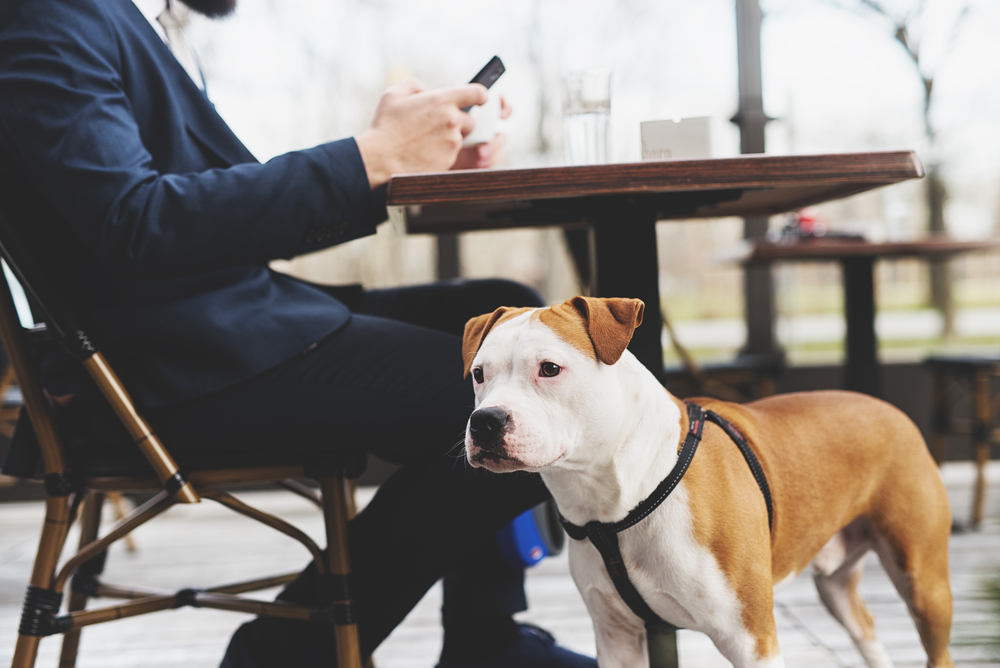
When you’re feeling insecure, your pet might exhibit signs of hesitation or uncertainty. Pets often look to their owners for cues on how to react in unfamiliar situations, and insecurity can make them second-guess themselves. You might notice your dog pausing at the door instead of charging ahead, or your cat being extra cautious before leaping onto the couch. This behavior is a gentle nudge to address your insecurities and provide your pet with a reassuring presence.
Understanding this dynamic can encourage you to work on building self-confidence. By projecting a sense of assurance, you help your pet feel more comfortable and trusting in their environment. Consider facing your insecurities head-on and practicing self-affirmations to strengthen your self-image. As you grow more confident, your pet will likely mirror that change with increased boldness. Remember, your pet’s hesitation is a reflection of your emotional landscape, and by nurturing self-confidence, you’re also providing them with a more secure environment.
12. Your Compassion Is Their Gentleness
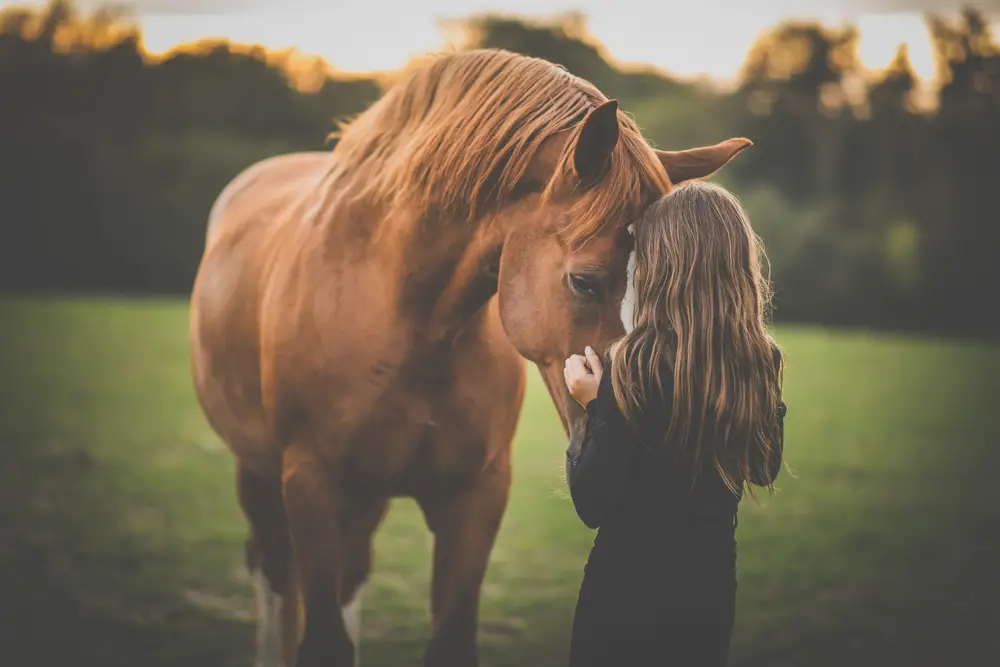
When you show compassion and empathy, your pet often responds with gentleness and tenderness. Pets are incredibly receptive to acts of kindness and often mirror these traits back in their interactions with you. You might find that when you’re gentle and caring, your pet becomes more affectionate and tender in return. This reciprocal relationship highlights the importance of compassion in cultivating a loving and supportive environment.
By practicing compassion, you reinforce positive behaviors in your pet, encouraging them to respond in kind. This approach not only strengthens your bond but also fosters a peaceful and nurturing household. Compassion can be as simple as taking the time to understand your pet’s needs or offering comfort when they’re distressed. These small gestures contribute to a harmonious living space for both of you. Remember, your pet’s gentleness is a testament to the compassion you show them every day.
13. Your Health Habits Are Their Vitality
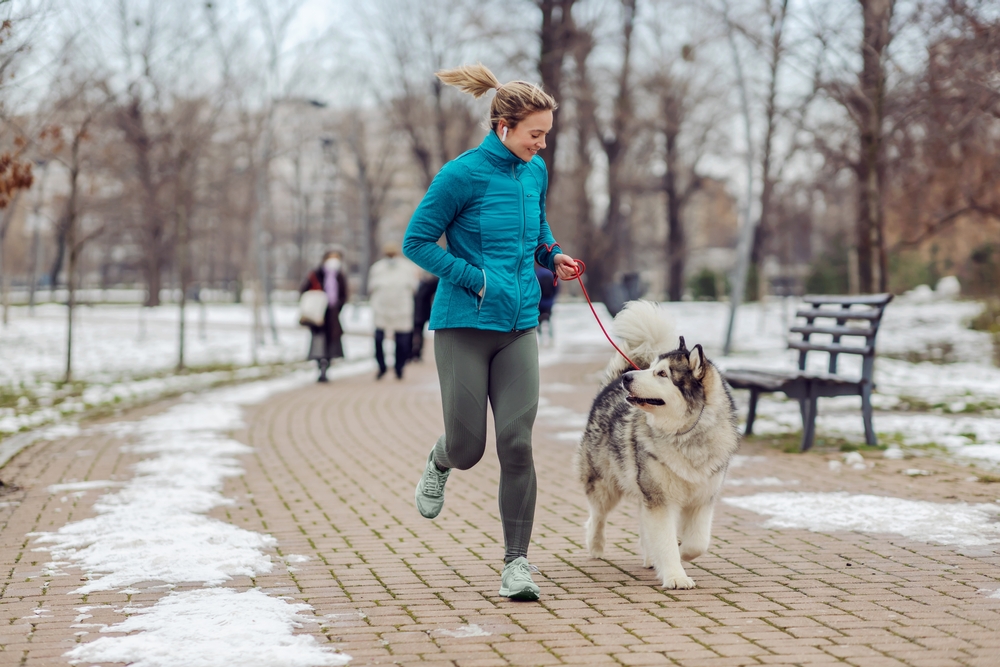
If you prioritize healthy habits, you might notice your pet reflecting that vitality and energy back to you. Pets are often influenced by the overall health environment of their household, mirroring the lifestyle choices you make. When you engage in regular exercise, maintain a balanced diet, and prioritize well-being, your pet is likely to benefit as well. This shared commitment to health can lead to increased energy levels and a more active and fulfilling life for both of you.
By fostering healthy habits, you create a positive ripple effect that impacts your pet’s overall well-being. Prioritizing activities like daily walks, playtime, and nutritious meals not only benefits you but also enhances your pet’s quality of life. Embracing a healthy lifestyle together can strengthen your bond and encourage mutual motivation. Remember, your pet’s vitality is a reflection of the healthy choices you make, contributing to a vibrant and energetic household. This partnership in health creates a strong foundation for a long and happy life together.
14. Your Love Is Their Loyalty
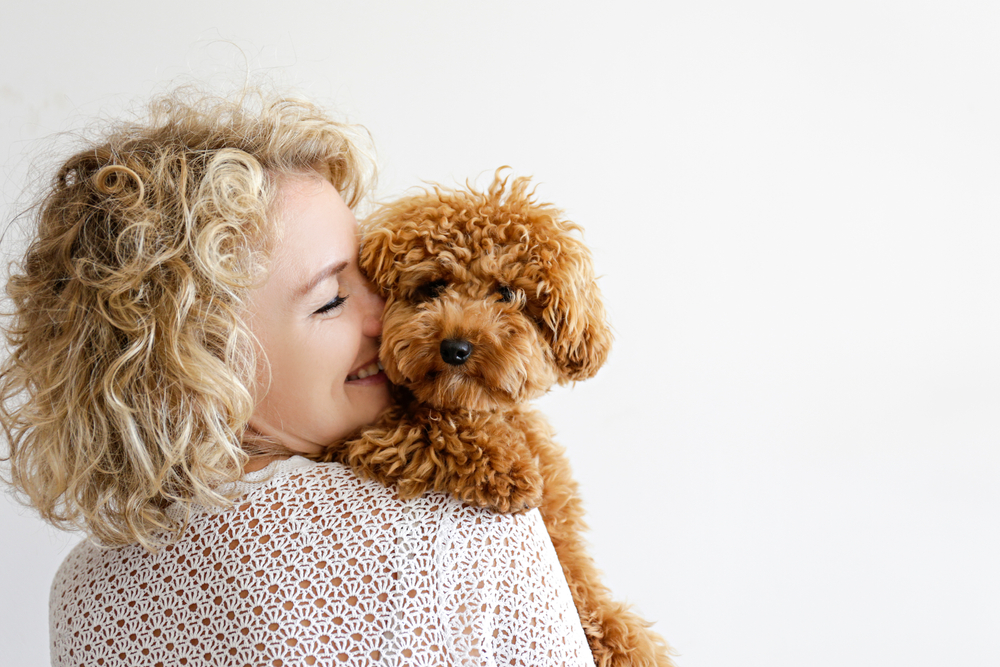
The love you show to your pet is often mirrored back in their unwavering loyalty and devotion. Pets are remarkably perceptive to the love and care they receive, and they often express their gratitude through steadfast companionship. You might notice your pet staying close by your side, eagerly awaiting your return, or showing affection in their own unique ways. This devotion is a reflection of the love you provide, fostering a deep and lasting connection.
Understanding the impact of your love can encourage you to continue nurturing this bond with your pet. By expressing love through regular attention, care, and affection, you reinforce the trust and loyalty between you. This relationship is a two-way street, where both you and your pet benefit from the mutual exchange of love and support. Embracing this dynamic can lead to a more fulfilling and rewarding companionship. Remember, your pet’s loyalty is a testament to the love you share, creating a foundation built on trust and affection.
